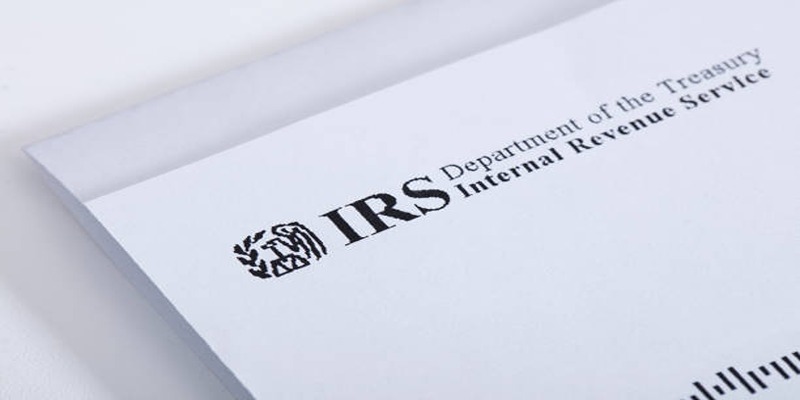Earning interest on your savings or investments feels great—until tax season rolls around. That extra cash in your account isn’t always yours to keep. Governments see interest income as taxable earnings, meaning a portion of it could go to the IRS or your local tax authority.
But how much? That depends on where your interest comes from—whether it's a savings account, bonds, or tax-advantaged accounts. Some interest income is fully taxable, some are partially exempt, and in rare cases, you might owe nothing at all. Understanding the rules can help you keep more of your earnings and avoid tax surprises.
What is Income from Interest?
Interest income is the money that you earn for allowing others to use your money. From a bank, credit union, or lending in the form of loans and bonds, you get interest as a means of compensation for your capital. Financial institutions typically pay interest on deposits that you place with them. When you invest in a bond or issue a loan, the borrower remits interest in return for utilizing your money. Normally, the person who pays you interest, say a bank, will report what you received and typically will provide you with a statement (like the 1099-INT in the U.S.) to assist with tracking it.
The IRS and most taxing authorities treat interest as taxable income, so in most situations, the interest you earn will add to your overall taxable income unless it is from some tax-exempt source. Therefore, although interest income can be a nice bonus, it's important to understand how it affects your taxes.
How Much of Your Income from Interest is Taxable?
The short answer is that most interest income is taxable. However, there are exceptions based on the type of interest you earn and specific exemptions. To determine how much of your interest income is taxable, you need to consider the following factors:
Interest from Bank Accounts and CDs:

Money earned from a traditional savings account, checking account, or certificate of deposit (CD) is typically taxable. These institutions report interest income on Form 1099-INT if you earn over a certain amount (usually $10 in the U.S.).
Interest from Bonds:
Income from bonds can also be taxable, but it depends on the type of bond. For example, interest from municipal bonds may be exempt from federal taxes and, in some cases, state taxes but taxable at the local level. On the other hand, interest from corporate bonds and treasury bonds is generally fully taxable.
Interest from Savings Bonds:
U.S. savings bonds (like Series EE or Series I bonds) are taxed differently. The interest from these bonds is exempt from state and local taxes but remains subject to federal tax. However, you may be able to defer the tax on the interest until the bond is cashed in or it matures, which could provide some flexibility in your tax planning.
Interest from Tax-Deferred Accounts:
Interest earned within tax-deferred accounts like IRAs (Individual Retirement Accounts) or 401(k) accounts is not taxable in the year it’s earned. Instead, you pay taxes when you withdraw funds from these accounts, often at retirement when your tax rate may be lower.
Exemptions and Special Considerations
While the majority of interest income is taxable, some exceptions may reduce the amount you owe in taxes. These exemptions often depend on the type of interest earned or your specific tax situation.
Municipal Bonds: Interest from municipal bonds is usually exempt from federal tax. It may also be exempt from state taxes if issued by your home state, making them attractive for higher-income earners.
Tax-Exempt Interest: Certain bonds, such as those issued by government entities or nonprofits, offer interest exempt from federal taxes, reducing your taxable income without having to report the interest earned.

Interest Earned from Qualified Tax-Advantaged Accounts: Interest earned within tax-deferred accounts like IRAs or 401(k)s isn’t taxable in the current year, allowing you to defer taxes until withdrawal, typically at retirement.
Interest on Loans to Family Members or Friends: When lending money to family or friends, interest received may be taxable if the loan is formalized. Adhering to the Applicable Federal Rate helps avoid tax issues.
Interest Exclusions for Education Savings Accounts: Interest earned in 529 plans or Coverdell ESAs is usually tax-exempt if used for qualified education expenses, helping lower taxable income and maximize savings for education costs.
How to Report and Calculate Taxable Interest?
Once you’ve determined how much of your income from interest is taxable, you’ll need to report it on your tax return. The IRS requires that all taxable interest income be included on your Form 1040. Here’s how to report it:
Form 1099-INT: If you earn over $10 in interest, you’ll receive a Form 1099-INT from your financial institution, which you must include when filing your taxes.
Form 1040: Report interest income directly on your Form 1040 under "Income," using specific lines designated for interest and dividend income.
Interest from Savings Bonds: Report interest from savings bonds as income, either over several years or all at once when you redeem the bonds, based on IRS guidelines.
Taxable vs. Non-Taxable Interest: Separate taxable interest from non-taxable interest when calculating your total income; only taxable interest contributes to your gross income.
Conclusion
Understanding taxable interest income is essential for smart financial planning. While most interest, such as from savings accounts and bonds, is taxable, exemptions exist, such as for municipal bonds or tax-advantaged accounts. By tracking your interest income and consulting with a tax professional, you can ensure accurate tax filings and avoid overpaying. Staying organized and informed helps reduce tax liability and support financial growth. Keep thorough records of earned interest throughout the year and ensure it’s reported accurately when tax season arrives to maximize your financial benefit.












